The Gartner Hype Cycle shows how risky it is to write books on technology trends
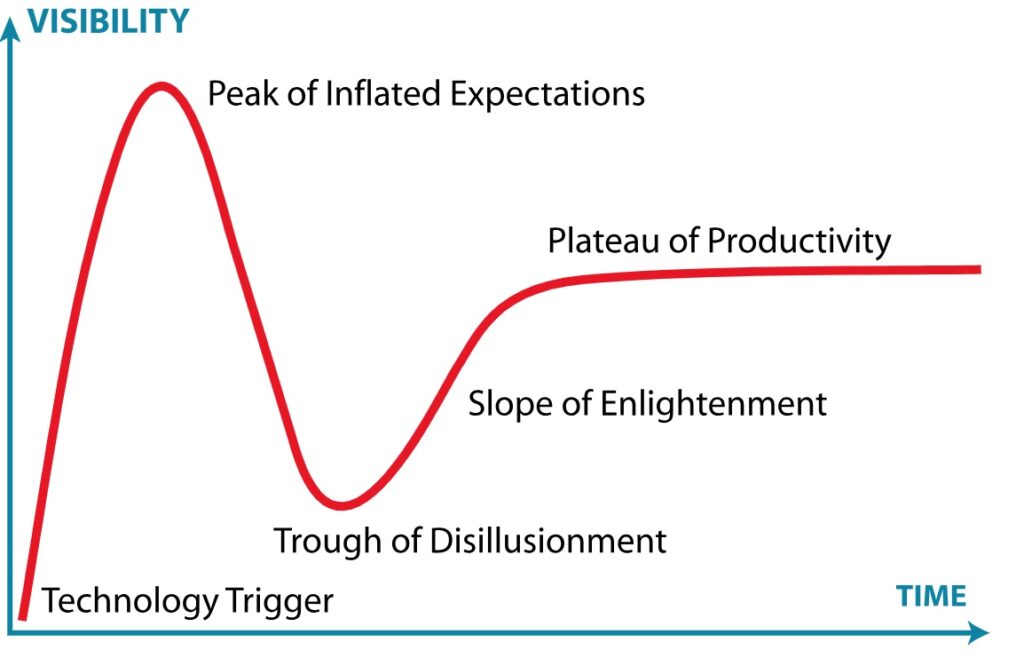
This is Gartner’s Hype Cycle, a representation of how new technologies inevitably become discovered, overhyped, trashed, and eventually adopted. It is also a diagram of why the odds are stacked against your book about technology.
I recently showed this to Carolyn Monaco, a highly experienced consultant who helps authors to succeed as thought leaders. Although she hadn’t seen the hype cycle before, she instantly saw the problem.
For a traditionally published book, the time lag between conceiving the book and publication tends to be about 18 months to two years. That means when you come up with the idea for a book about a technology trend, the world is at one spot in the hype cycle, and when the book is published, the the prevailing attitude about that technology has changed completely.
Let’s examine what this means for your book.
Books about nascent technology
Let’s imagine that you’re writing a book about some new tech that’s not yet commonplace. For example, this would apply right now to a book about quantum computing or humanoid robots. The black book in the diagram below shows where the tech is on the Hype Cycle when you conceived the book, while the grey books show where it might be a year and half later when the book is published.
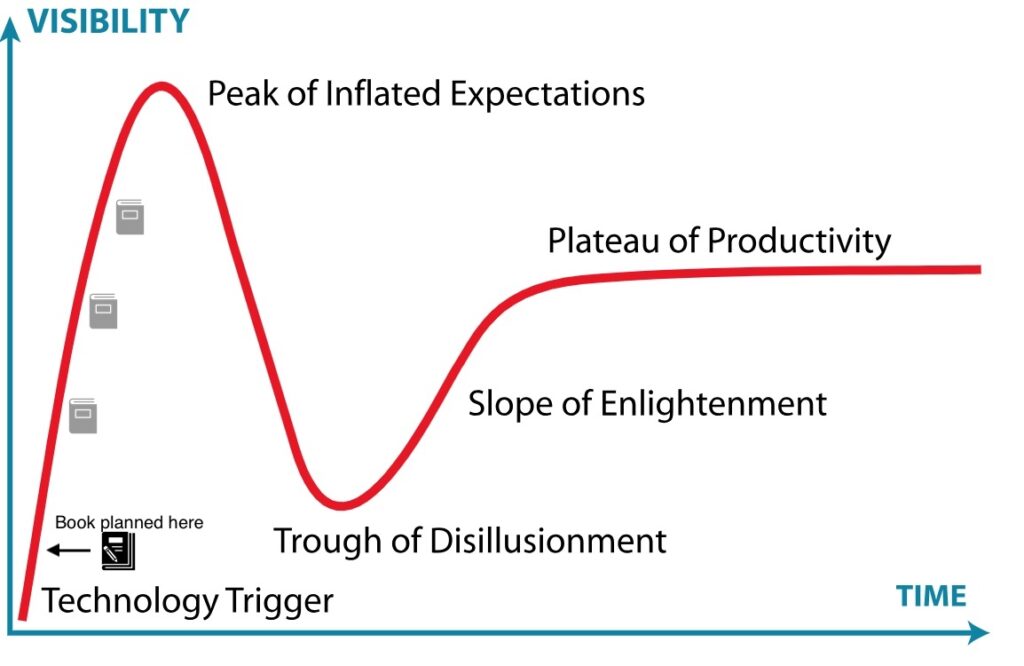
But where will the technology actually be a year-and-a-half after you conceive the book? That’s impossible to know, because new technologies develop on highly unpredictable schedules. As shown by the grey books on the diagram, your book might come out when the technology is still immature and mostly unusable, making you look delusional. (Read any books about about Google+ lately?) Or it might come out just as everyone is talking about the new technology, making you seem like an incredible visionary. Unfortunately, neither you nor the publisher knows which it is (even if you think you know). So there’s a lot of risk in publishing a book about a nascent technology.
Books about technology at the peak of inflated expectations
Why not wait until the technology catches on? If you do, you virtually guarantee that your book will fail.
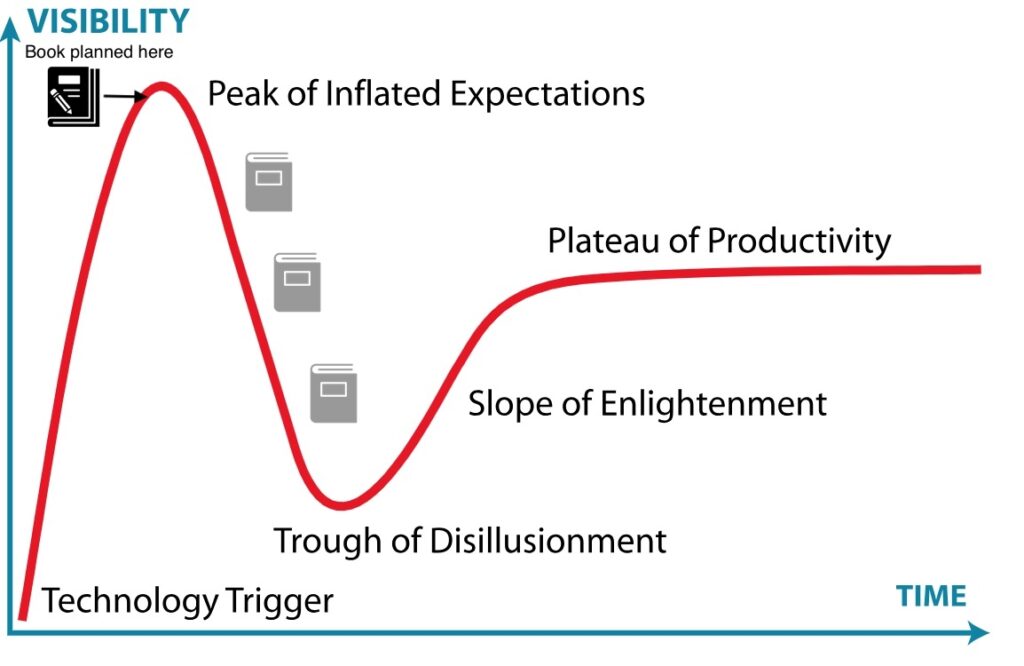
If you conceive a book right now on a technology that everyone is currently talking about, as shown by the black book on the diagram above, you’ve got multiple problems. First off, every publisher is looking at lots of book proposals on that same technology trend. Even if you secure a publisher, by the time your book comes out in a year-and-a-half, people will likely be tired of the trend. As shown by the grey published books in the diagram, you’ve now got a book on an overhyped technology in a crowded market of other books on the same overhyped technology. That’s a pretty hard challenge to overcome. (This is why I tell people not to write a book on artificial intelligence right now; they’re doomed.)
Books about technology in the trough of disillusionment
If a technology is about to make the transition from out-of-favor to practical, shown by the black book in the diagram below, a book about it would seem to make sense.
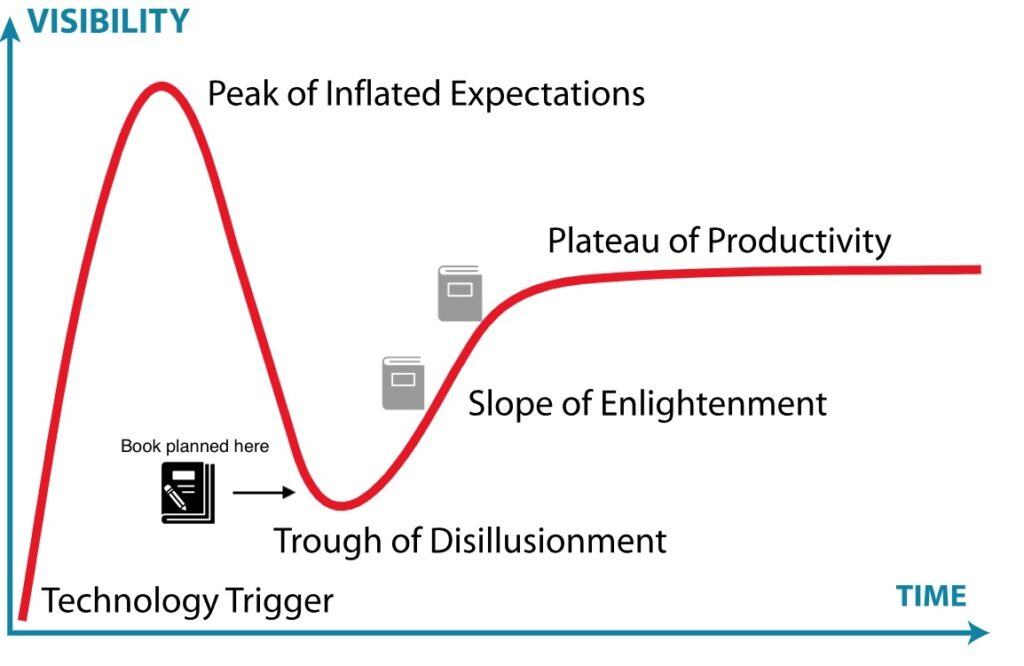
Unfortunately, no publisher is about to embrace your book proposal about last year’s overhyped technology. If you do find a visionary publisher and you’re right about the technology going from out of favor to useful, you could have a very successful book in a year or two. Maybe if you show your agent or publisher this diagram, they’ll take a chance on you. But probably not.
Books about technology in the plateau of productivity
Unlike the rest of the Hype Cycle, the plateau of productivity is flat. That means you can write a book and expect that things won’t have completely changed by the time it’s published.
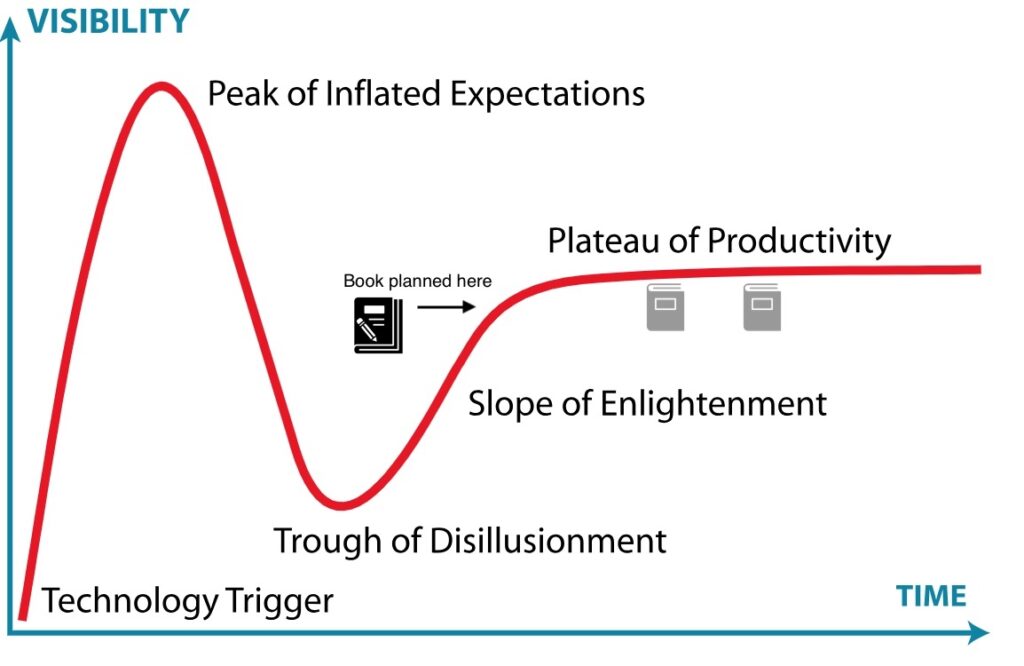
Now you’re writing about a stable, useful technology. You can create a nice “how-to” book and expect that it will remain useful when it’s published and perhaps for years afterwards.
Don’t expect breakout success, because your book on ecommerce or digital marketing or mobile applications will not be a revelation to anybody. And there will be many other how-to books on the same topic to compete with. If your book is the best, it could become a standard manual that everybody loves and adopts. But it’s going to take a lot of smarts and some pretty good marketing to get to that spot, because the value of such books is not a secret.
How to escape the tech book trap
This post has shown the pervasive risks in books on technology trends. But I know that the people who want to write these books tend to be passionate about them. So what should they do?
First, have a crystal ball. If you are such a great analyst of technology that you can actually see and predict when a technology will take off — and convince a publisher about that — you could have the breakout book on the new technology. Just recognize that the time to reveal that is before the technology is big, not at the peak of inflated expectations.
Second, consider hybrid or self-publishing. You can cut the time to publication to six months or less. This vastly reduces the risks from the delays inherent in traditional publication.
Third, focus on technology strategy, not technology features. Strategy tends to have more staying power in a world that’s changing rapidly.
And finally, recognize that you’ve chosen a risky path. Books about evergreen topics like branding, productivity, self-confidence, or investing don’t face the challenges that the tsunamis and whirlpools of technology adoption create. But where there is risk, there can be reward. If you do manage to get your visionary book out just as the wave is cresting, you could be the book that catches on about that new technology topic.
Good luck. You’re going to need it.